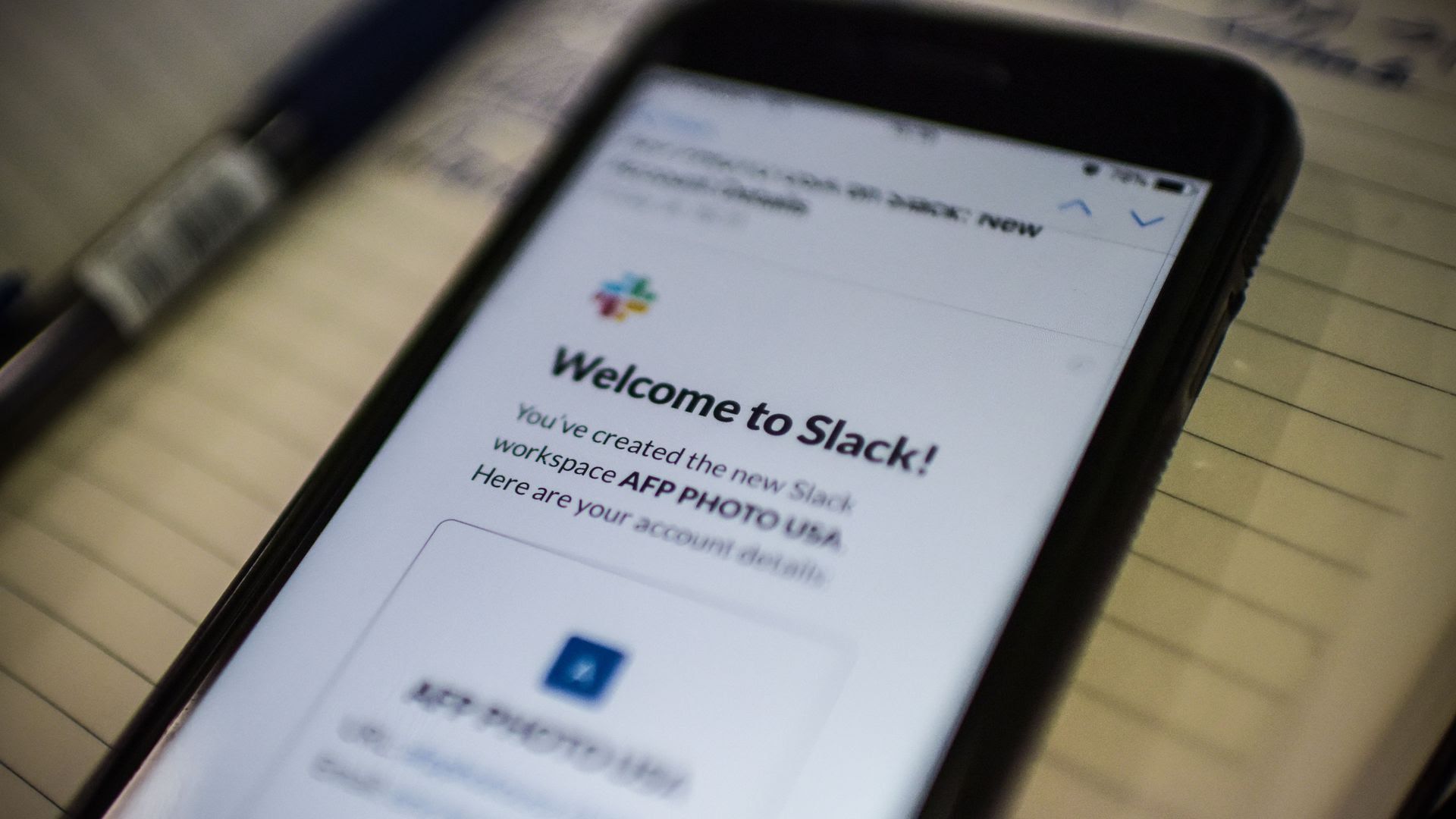Direct listings challenge benefits of traditional IPOs for unicorns
Add Axios as your preferred source to
see more of our stories on Google.

Photo: Eric Baradat/AFP/Getty Images
This year's rush of unicorns to the public market is challenging many long-held notions about the stock market, perhaps most notably the idea that companies need pricey investment bankers and other well-paid middlemen to go public.
Why it matters: With a historically low number of companies going public in recent years, investment banks are relying on big deals from billion-dollar companies like Uber, Zoom and Lyft to make their money.
The latest: Slack held its "investor day" earlier this week ahead of a direct public listing expected in early June instead of a traditional IPO, and all eyes are on how it performs.
- If future unicorns and minotaurs like Juul, Stripe or Airbnb choose direct listings over IPOs the well could start to run dry.
How it works: In a traditional IPO, one or more investment banks serve as underwriters — financial experts who manage many aspects of the offering.
- They set up roadshows to court potential buyers and raise capital.
- File paperwork with the SEC.
- Set the IPO price and buy shares from the company then sell them to various investors through their distribution networks.
- Provide a safeguard if demand is weaker than expected.
Be smart: Underwriters have typically charged fees of "4-7% of gross proceeds, plus an additional $4.2 million of offering costs directly attributable to the IPO," according to PwC, no matter how the IPO goes. (Larger companies typically get to pay much lower IPO fees, e.g., Uber's underwriters walked away with a paltry $100 million.) That's a hefty price to pay, but until recently was simply the cost of doing business.
The big picture: Bankers have warned that direct listings are risky, but the unimpressive IPOs of Lyft and Uber are challenging the notion that companies benefit by going the traditional route.
- Despite having the cream of the crop in the likes of Morgan Stanley, Goldman Sachs, JPMorgan and Credit Suisse, among many others on their underwriting teams, both companies' stocks have flamed out and late-stage investors are now underwater.
The bottom line: Slack is the first headline company to pursue a direct listing since Spotify successfully went public last year. Axios' Dan Primack tells me more companies are talking to Spotify about direct listings and considering following its blueprint.
What to watch: Companies are staying private longer as they consistently are able to raise larger amounts of capital through private funding. It's a new market reality that means less companies for investors to choose from and higher multiples for the stock market overall.


SEC Chair Jay Clayton recently bemoaned the new environment as leaving much of America without the opportunity to benefit from what's becoming an increasingly important share of the U.S. economy.
- "We have to do something about that," Clayton said earlier this month at the Investment Company Institute's annual gathering.
What's next? For investment banks, it's a double-edged sword: Fewer companies go public, and some that do are big enough and will hold sufficient brand recognition to skirt an IPO and go straight to the public.
- Yes, but: Even in direct listings, companies are still consulting with bankers, who will likely never be completely left out in the cold.
Go deeper: Spotify inspires unicorns to ponder going public via direct listing
